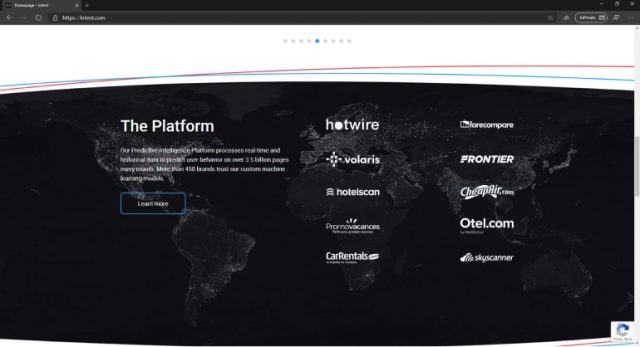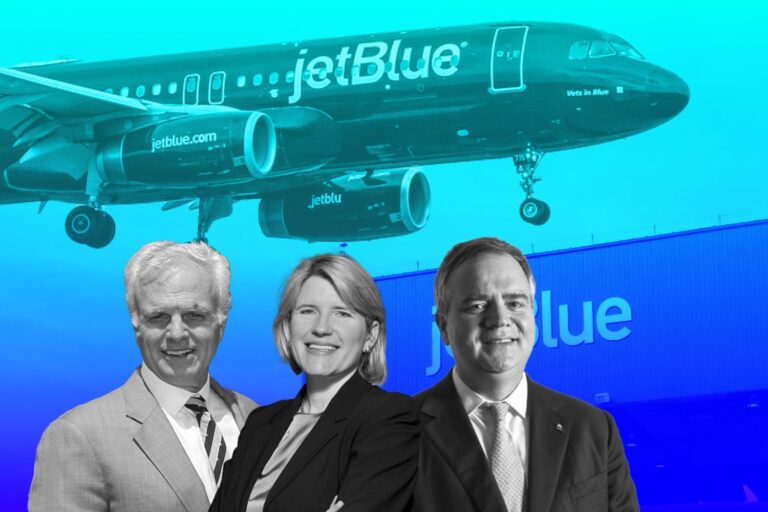Future of Hospitality: What Is the Role of Technology?
Technological factors have an influence on the overall activity of hotels and their competitiveness on the hospitality market. The introduction and utilization of new technologies are linked to the ambition of entrepreneurs and managers to achieve certain goals. The connection between tourism and information technologies is a natural one, as they both belong to the service sector
There is widespread recognition among industry leaders that the role of digital technology is rapidly shifting, from being a driver of marginal efficiency to an enabler of fundamental innovation and disruption. Digitalization is the cause of large-scale and sweeping transformations across multiple aspects of business, providing unparalleled opportunities for value creation and capture, while also representing a major source of risk. Business leaders across all sectors are grappling with the strategic implications of these transformations for their organizations, industry ecosystems, and society. The economic and societal implications of digitalization are contested and raising serious questions about the wider impact of digital transformation.
Digital technology is transforming most industries and creating new challenges that need to be understood. These include factors such as the pace of change, cultural transformation, outdated regulation, identifying the skills needed for the future, overcoming shortcomings in legacy systems, and the need to fund both digital and physical infrastructure. These challenges need to be addressed by industry and government leaders to unlock the substantial benefits digital offers society and industry. The hospitality industry is part of a huge group of companies known as the travel and tourism industry, which provides the necessary or desirable goods and services to travelers.
#1: Porter & Sail – The Leading-Edge Hotels

So how to take advantage of this technology in the hospitality world? Let’s find out with this article.
Porter & Sail is a hospitality technology start-up based in New York. This company provides digital hospitality for leading hotels, using leading-edge technology with engaging lifestyle content to ensure deep, organic and actionable guest engagement between hotels and guests. Positioning itself after a hotel concierge, its hotel digital concierge app has partnered up with a list of hotels around the world to provide a lot of recommendations tailored to suit its guests.
They built a guest-facing mobile app for guests at luxury hotels. Porter & Sail says its mobile app is so compelling that guests average 7 minutes per app session, with 28.8 screens viewed per session. Through this app, guests can easily find what to do in the city, how to get there or who to ask for when they arrived. With the lifestyle content focus beside technology, Porter & Sail helps the hotels understand who their guests are through the app’s data. The mobile app usage powers industry-first analytics and data insights that empower smarter, better hotels. The software strives to provide actionable insights for operations staff.
Guest spending and preferences, previous stays, social demographics, and trip purpose can be collected. Guests can also use the app to request restaurant reservations and other concierge services from the hotel.
This unique helps them to create a deep connection to engage with both hotels and travelers. The company has established partnerships with more than 100 hotels.
What problem does Porter & Sail solve?
Hotels are struggling with digital inefficiencies that are undermining market share and growth. Online travel agencies and short-term rentals undermine revenue, undercut the hotel’s ownership over their guest, and leverage technology to claim the once-loyal hotel guest.
Porter & Sail solves these problems through providing hospitality-friendly, digital tools that empower hotels to reclaim ownership over their guest — enhancing their long-term value and driving premium revenue streams.
Through implementing Porter & Sail, hotels increase touch-points with their guests, connecting directly and meaningfully with them from booking to checkout, thereby augmenting satisfaction, on-property spend, peer-to-peer referrals, and direct bookings.
Our products capture unprecedented business intelligence that, for the first time in the industry, allows the hotels to understand who their guest is and serve them more effectively to drive repeat and direct bookings.
#2: Intent Media – Voyat

Intent Media, founded in 2009 by former executives of travel agency site Travelocity is an ad tech company based in Lower Manhattan, is wielding M&A as a means of poaching clients from larger competitors such as Google.
In 2016, Intent Media announced that it took over New York software startup Voyat, a shop led by CEO Benjamin Habbel. Intent Media, a provider of advertising tools for online travel agencies, is buying software company Voyat in a bid to take ad dollars from search engines such as Alphabet Inc’s Google. The deal is aimed at giving Intent Media a better foothold in the hotel industry.
Voyat is the technology company powering direct connections between hotels and customers online and on-property to define a new tier in guest loyalty. Using Voyat’s lightweight platform, hotels can achieve true 1:1 relationship with their guests and present offers, promotions and guest loyalty rewards tailored to every individual. Voyat creates a lasting digital link between every guest or visitor at a hotel property via a WiFi connection to strengthen the direct booking channel and increase customer lifetime value. As a result, the guest is recognized as the valued customer that they are and the brand is able to set itself apart in an overcrowded marketplace to keep those loyal customers coming back.

Benjamin Habbel, the founder of Voyat, an e-commerce optimization platform, said: “From a technology standpoint, the number-one way to compete with Airbnb is for hotels to get their act together on design and e-commerce. Nothing beats the logged in experience of using the Airbnb app,” Habbel said. The customers get personalized recommendations. Pages on the app load quickly.
Hotel staff may interact with guests in real life (in contrast to most Airbnb listings) but according to the founder of the e-commerce optimization platform Voyat, Benjamin Habbel, hotels need to invest in both the digital experience and the real-life experience. “The overall strategy for an independent hotel or a brand is to make the most of the thing that they have that Airbnb doesn’t have, which is they actually interact with the guest in real life,” Habbel told skift.
“They have the opportunity to extend and amplify that interaction by using chat-based or other tools before or after a stay to communicate with a guest, for example,” he added. He also praised the Airbnb app when compared with hotel booking systems. From a technology standpoint, the number-one way to compete with Airbnb is for hotels to get their act together on design and e-commerce.
#3: Denihan Hospitality

Denihan Hospitality Group is a privately-held, full-service hotel management and development company that owns and operates 15 boutique hotels in major urban markets in the U.S. Over the past 50 years, the Denihan family has built a world-class lodging investment platform within the boutique hotel space, creating value by acquiring, repositioning and managing independent hotels.
While Denihan says hospitality is an art that can’t necessarily be taught, she does believe certain key training can help bring an authentic experience that travelers crave. “You can’t teach people how to have a natural connection with guests, but tools to read the customer can certainly help,” says Denihan.

The company’s uniquely guest-centric approach, refined through three generations of Denihan leadership, has made it an industry leader in hospitality, property and restaurant development, as well as hotel operations, management, and marketing. In 2011, Denihan was named to Inc. Magazine’s 500|5000 list of Fastest Growing Companies for the third year in a row, where it topped the list of full-service hotel companies.
Denihan is a nationally recognized, independent owner and operator of luxury and boutique hotels in top U.S. urban markets. The company is distinguished by a uniquely personal, guest-centric approach to hospitality that has been developed and refined through more than 50 years and three generations of family leadership in the hospitality industry. This approach is built not around design trends, cookie-cutter approaches, or service gimmicks, but around the timeless and authentic values that are the true foundation of the positive guest experience.
The Denihan portfolio includes properties operated under The James and Affinia Hotel Collection, as well as luxury New York City hotels including The Surrey and The Benjamin. Each hotel has been individually tailored with thoughtful details and amenities, resulting in a collection that covers a full range of traveler needs and reflecting distinct neighborhood locations.
Denihan’s core values—instilled by the company’s founder, Benjamin ‘Bud’ Denihan—continue to be the foundation of its culture. Mutual respect, hard work and a relentless focus on superior customer service are principles reflected in the company’s day to day business, as well as in the people it hires and the partners with whom it does business.
Today the Denihan portfolio includes hotels located throughout New York City, with a planned opening of The James Washington D.C. in 2020, as well as an impressive list of chef-driven restaurants and bars.
Hospitality Technology in Digital Era: Opportunities or Challenges?
For SMBs, modern technology not only brings convenience in daily life, but it can also raise the art of hotel decoration to a new level. For the guests who thrive on technology, keeping pace with their tech requirements will be a must, not an option.
Although opening up many business opportunities, rapid development makes many hotels unable to adapt. Moreover, high competition has made the hospitality markets become more exciting than ever. This means that companies in this industry must enter a more fierce competition. Therefore, in order for companies to operate more efficiently, employers must find new ways to make a difference. Typically, some large hotels have started to apply technology to create their own impressions, such as user management software or online booking. More technology not only brings convenience in daily life, but it can also raise the art of hotel decoration to a new level.
For example digital menu tablets at restaurants that allow customers to place their orders directly with the kitchen. Moving forward, this trend will continue to spread through the hospitality industry as customers expect greater control over their experience. The most important thing is bringing convenience to customers. Besides, improving customer experience is also a key to increase your business.
The Bottom Line
At each stage of development, hospitality technology will have different business trends. So, to succeed, the owners always have to try to catch up with the trend and focus on improving the experience for customers. In the current technological era, the application of technology solutions is the golden key to innovating the customer experience and opening the door to success for the hospitality industry.
It can be said that the development of technology has brought both business opportunities as well as challenges. The important thing is how your business can adapt and take advantage of these enormous opportunities.
You Might Also Like:









